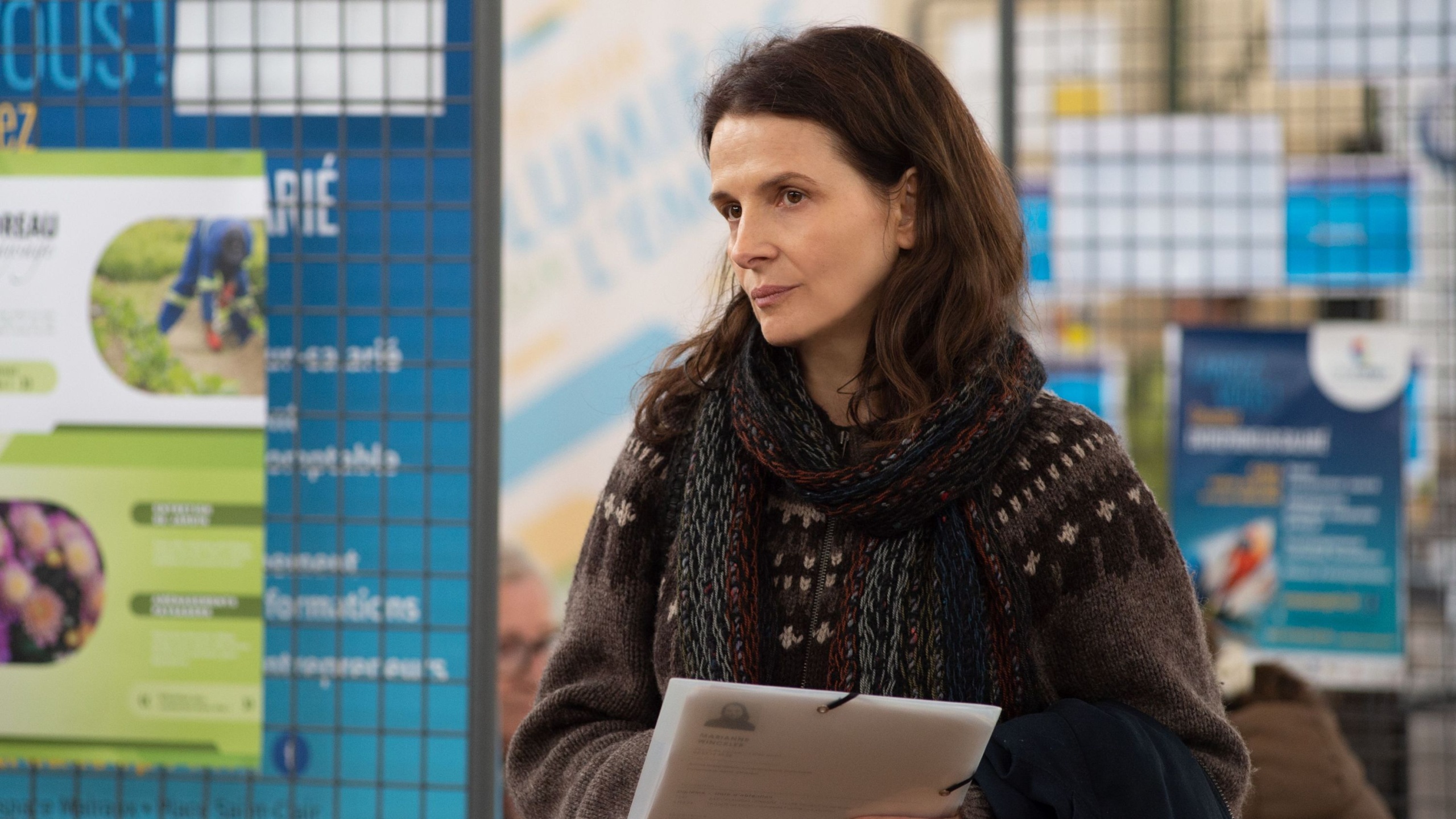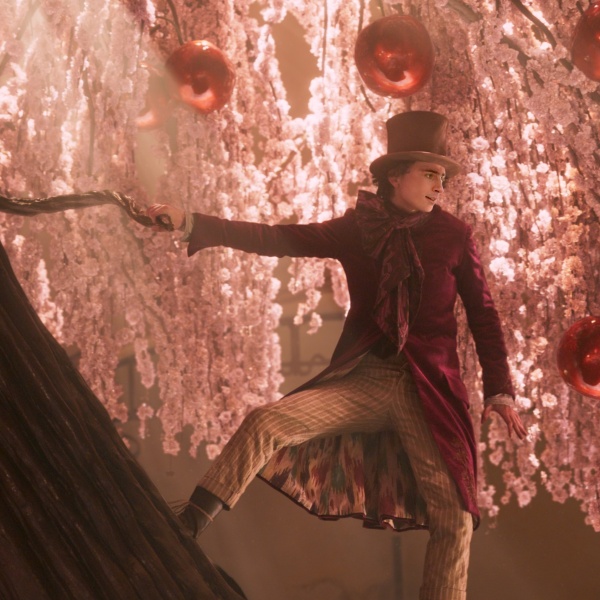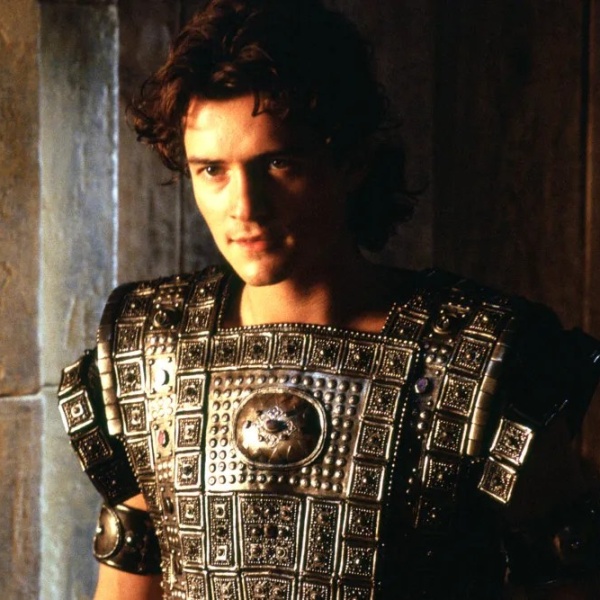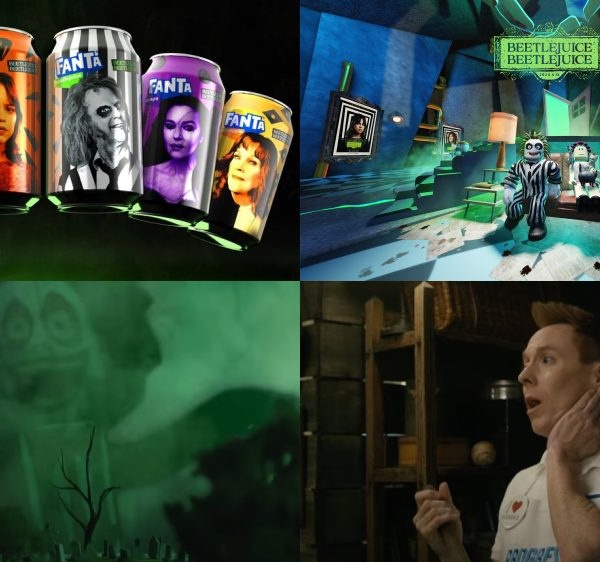No matter how well a job interview begins for Marianne Winkler (Juliette Binoche), things inevitably hit a wall when she’s asked a dreaded question: Why is there a 23-year gap on your resume?
Her standard answer is an economic horror story that women have feared for centuries. She gave up her career to focus on being a stay-at-home mom, only for her husband to leave her and force her to fend for herself. With no career development since college, she’s effectively entering the workforce as a recent graduate, competing with people half her age despite having significantly more expenses and less time to move up the ranks.
It’s a touching story — except none of it is true. As it turns out, Marianne is a world-renowned author who decided to briefly eschew her life of glamor in preparation for her next book. When she came up with the idea to write about poverty in Northern France, she posed a challenge for herself: She would give herself a frumpy makeover and live on pennies a day for as long as it took her to find full-time employment. Once she received a permanent job offer, she would decline it and return home to write her masterpiece.
After working a few odd jobs, she finds herself making friends within the local community of day laborers who take whatever shifts are offered to make ends meet. She soon becomes close with Chrystèle (Hélène Lambert) a single mother who often works 18 hours a day (not counting her hour-long walk to work at 5 a.m.) at three different jobs. Marianne offers to start driving her to work, and the two women bond over shared complaints about cleaning the local ferry and the simple pleasures they find to make life bearable. But the more she immerses herself in Chrystèle’s life, the harder it becomes for Marianne to keep her secret.
Marianne doesn’t have a specific idea for her book when she first goes undercover, preferring to let inspiration strike her at its own pace. Emmanuel Carrère’s film utilizes a similarly loose structure, drifting from a politically charged piece of social commentary to an ensemble piece about a community of women to a two-hander about a single relationship as it tries to figure out what it wants to be. The script appears to be just as confused as Marianne is about what the next day will hold, which allows us to follow her on an organic journey of self-discovery that ends with an appropriate amount of ambiguity.
We meet Marianne when she is already immersed in her experiment, so it’s a long time before we see her in the elite circles where she thrives. Because we witness everything from her perspective, we’re effectively stuck between two worlds in the same sense that she is. That narrative device turns Marianne into a difficult character to wrap one’s mind around — even if we know that she’s doing an objectively weird thing with potential to backfire spectacularly, we can’t help but empathize with her plan because we’re never seeing anyone push back on it.
That lack of pushback threatens to derail the film at times — there are points where Marianne risks becoming a distasteful Mary Poppins-type figure who teaches the poor people how to have fun. But the film is ultimately able to offer a nuanced illustration of the situation that acknowledges both her good intentions, her exploitative actions, and the way she simultaneously helps and hurts the people around her. Binoche gives a predictably excellent performance, embodying Marianne with just the right amount of elite obliviousness without ever turning her into a caricature. It’s touching to see her become more empathetic as the story progresses, even if eventually snapping back to her old ways was the only possible outcome.
Despite the politically minded intentions of its protagonist, “Between Two Worlds” ultimately has less to say about class than friendships. It’s a thoughtful examination of the close bonds that can form between two people and the limits of what those friendships can withstand. Marianne and Chrystèle bond over their bleak “shared” circumstances, but their friendship evolves into something much deeper. Marianne views their spiritual kinship as something that can transcend economic status, but Chrystèle sees much of her affection evaporate once their lives diverge. The film raises two questions that it never fully answers. Can a friendship ever survive without any shared circumstances? And does empathizing with someone from a distance have any real value — or is Marianne’s distant activism worth less than the paper it’s printed on?
Grade: B+
“Between Two Worlds” is now playing in select theaters in New York and Los Angeles.



